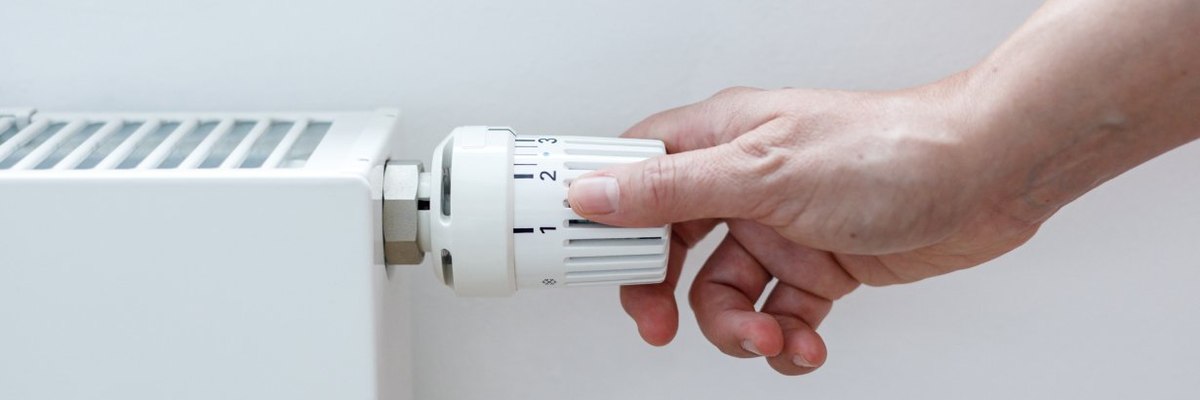Three quarters of the public are reducing usage in some way, with heating the top area people are making cuts
With rising energy costs driving the cost of living crisis, a new YouGov Political Research survey provides a comprehensive view of the ways in which Britons have been trying to reduce their gas and electricity usage.
Overall, almost three-quarters of Britons (73%) say they have cut back on the amount they are using electric or gas devices at home, with just a quarter (27%) not making any changes at present.
The number of people cutting back on their use of electricity and gas at home rises to nine in ten (91%) when looking at those who are ‘struggling financially’ – Britons who describe themselves as struggling, or unable, to afford their everyday costs. A fifth of the overall population currently fall into the ‘struggling financially’ category, a figure that has been gradually rising over the course of the cost of living crisis.
In what ways are Britons reducing their energy usage?
The most common energy use category that Britons are cutting is heating, with most people (61%) making changes here. Almost half (46%) are also using their lights less, while four in ten (40%) are consciously turning devices off standby when not in use. Three in ten (31%) are reducing the amount of hot water they use, while in the kitchen 35% are utilising their over less, 36% their washing machine or tumble dryer, and 22% their kettle.
While this article goes into more specific detail on the ways people are making cuts in each category, we have summarised the top ten most common ways people are cutting their energy use in the chart below.
At the top of the list is wearing more layers or using blankets, with 45% of Britons doing this to try and make energy savings. A similar proportion (41%) are consciously turning off lights when not in that room, while in third place is not putting the heating on until you are cold (32%).
Looking at what those who are struggling financially are most likely to be having to do relative to the wider population, not using the heating at all tops the list. While a quarter of all Britons have stone cold radiators (25%), this rises to 44% of those struggling financially – a difference of nineteen percentage points.
Likewise, almost two in five (38%) of those struggling financially are sitting in the dark rather than turning their lights on, a rate double that of the public as a whole (19%).
One in three financially struggling Britons are washing their hands in cold water only (32% vs 15% of all Britons), a difference of seventeen points, and are sixteen points more likely to be wearing more layers and using blankets to keep warm (61% vs 45%).
In what ways are Britons reducing their energy usage: heating
Cuts to heating are the most common way people are currently trying to reduce household energy (61%). The most common adjustment people are making is wearing more layers or using blankets (45%) but significant numbers of people are also waiting until it is cold before turning on the heating (32%), reducing the thermostat temperature to lower than usual (29%), or reducing the time they have the heating on (27%).
A quarter of Brits (25%) are not using heating at all, with this figure rising to 44% amongst those who are struggling financially. One in five of this group (22%) are also using fewer rooms in their house to cut heating costs or using hot water bottles (20%).
In what ways are Britons reducing their energy usage: lighting
The main way people are reducing the amount they use lights in the home is relatively undisruptive – four in ten (41%) are making sure they turn off lights in rooms they are not currently using. Additionally, almost one in five Britons (18%) are switching to energy efficient lightbulbs as a way to limit costs in the longer term.
A quarter of Britons (25%) are waiting until it is dark before turning on the lights, while 19% aren’t turning them on at all, instead opting to sit in the dark. Almost four in ten (38%) of those who are struggling financially are taking this more extreme lighting measure.
Other ways people are trying to save on energy when lighting their homes are by using lamps (12%), candles (8%) or battery operated lights (4%).
In what ways are Britons reducing their energy usage: hot water
Three in ten (31%) are taking measures to reduce the amount of hot water they use in the house. This includes taking shorter showers (18%), showering less frequently (13%), or switching from baths to showers (12%).
One in seven (15%) have switched to washing their hands with cold water to save on energy costs while 5% are doing the same when it comes to doing the washing up. One in nine (11%) are washing up less often than usual to limit the amount of hot water they need.
In what ways are Britons reducing their energy usage: ovens
By far the main way people are making cuts when it comes to kitchen appliances is by reducing their use of the oven with over a third of people (35%) in Britain doing this in some way.
More than a quarter (28%) are opting to cook food using different methods such as using the hob, microwave or an air fryer instead. One in sixteen Britons (6%) say they have cut out using the oven completely, rising to 14% amongst those struggling financially.
One in twelve Britons (8%) say they are limiting the number of hot meals they eat each week, rising to one in five of those struggling financially (20%).
The public are also limiting how often they use the oven by batch cooking (13%), not preheating the oven before putting food in (7%) and turning it off before the cooking time is up (8%). While some people are switching to a hob instead of the oven, one in eleven (9%) are also reducing how much they use their hobs for cooking.
In what ways are Britons reducing their energy usage: kettles
A fifth of Britons (22%) are cutting down on how often they use the kettle. The most common way people are doing this is by making sure they only boil the amount of water they need (15%) while 4% are filling a flask so the water stays warm all day. One in eleven (9%), including a quarter of those struggling financially (24%), are having fewer hot drinks to save on energy bills.
In what ways are Britons reducing their energy usage: washing machines and tumble dryers
A quarter (25%) of the public are consciously waiting until they have a full load before washing their clothes, while 17% are lowering the temperature they wash clothes on. One in seven (15%) are wearing their clothes longer than they’d normally do to limit the number of washes they need.
Turning to drying, one in four (24%) have turned away from the tumble dryer completely, instead hanging up their washing to dry.
In what ways are Britons reducing their energy usage: TVs and games consoles
Focussing on entertainment devices, one in eleven (9%) are watching less TV than usual, 3% are instead using a smaller screen like a tablet to watch TV, while 3% have stopped using the TV completely.
One in twelve (8%) say they are turning off entertainment devices entirely when not in use, rather than leaving them on standby. Two in five Britons (40%) say they are following this practice across devices in their home, not just the TV.
One in fourteen Britons (7%) are also reducing how often they use their games consoles.
In what ways are Britons reducing their energy usage: other appliances
Smaller numbers of Britons are also reducing the use of other appliances around their household.
One in eleven Britons (9%), including 21% of those struggling financially have reduced their use of a vacuum cleaner, while people are also limiting how often they use an iron (7%) and hair dryer (7%).
Returning to the kitchen, some people are also reducing the use of the dishwasher (9%) as well as smaller appliances like coffee makers (4%) and slow cookers (3%).
One in twelve (8%) are reducing use of their computer or laptop, and 7% are using their phone chargers less.
Photo: Getty









